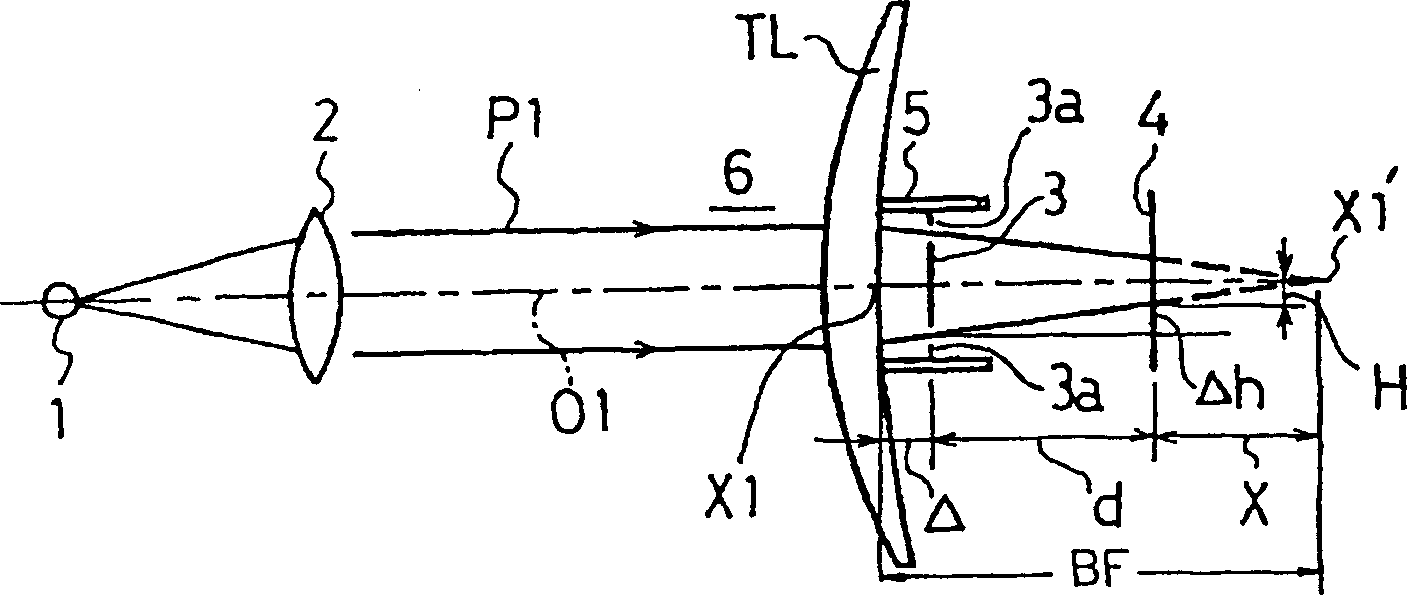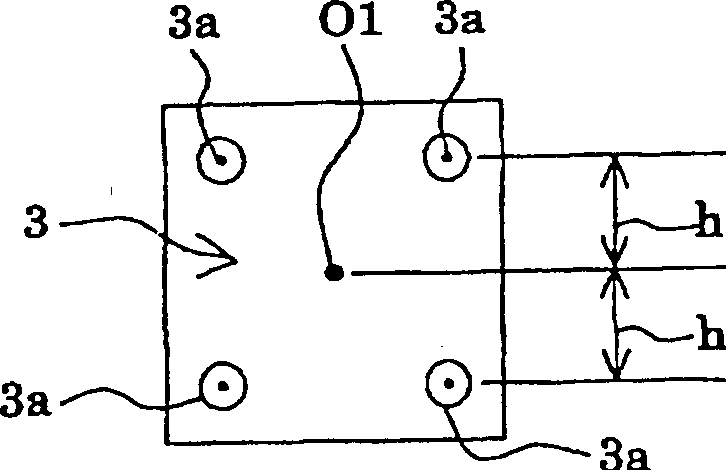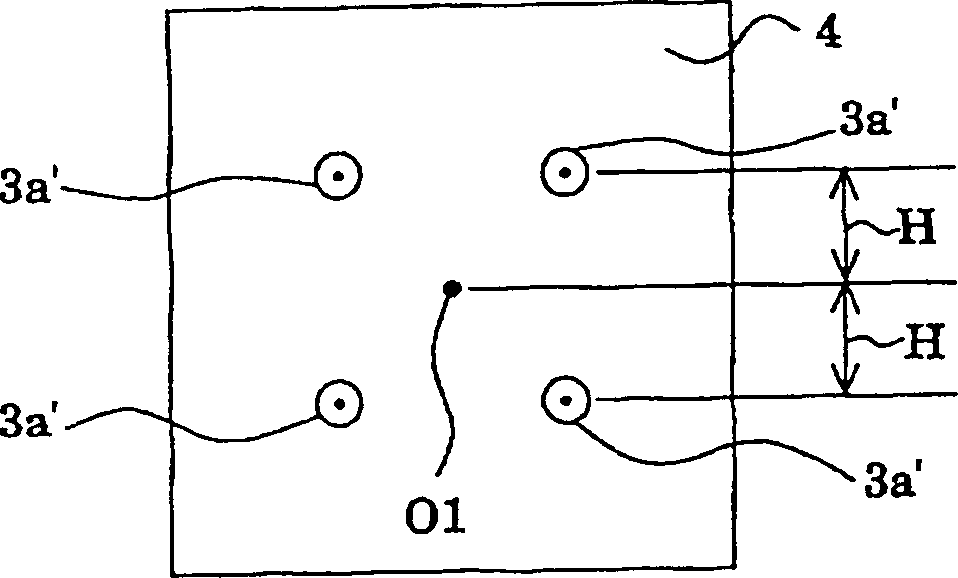Lens tester
A measuring instrument and lens technology, which is applied in the field of lens measuring instruments and can solve problems such as conjugate relationship offset
- Summary
- Abstract
- Description
- Claims
- Application Information
AI Technical Summary
Problems solved by technology
Method used
Image
Examples
Embodiment 2
[0092] Figure 15 Shown is an optical system of a lens measuring instrument of the type in which a measurement beam enters the lens under test TL from the concave side of the lens under test TL and emits a parallel beam P2 from the convex side of the lens under test TL. in the Figure 15 in, for with Figure 5 The same constituent elements are assigned the same symbols and will be described below.
[0093] On the target board 12 as Figure 16 As shown, five openings 12a-12e are formed. The opening 12a is located on the measurement optical axis O1, and four openings 12b-12e are formed at equal intervals around the opening 12a. In addition, 15 ′ is an area sensor 15 .
[0094] It is assumed that each of the LEDs 10 a - 10 d is made to emit light, and the measurement beam is led to the target plate 12 by the collimator lens 11 . In addition, the eccentric position X3 of the measured lens TL is located on the measurement optical axis O1.
[0095] The target board 12 is loca...
Embodiment 3
[0103] Figure 18 Shown is the optical system diagram of the lens measuring instrument using the shadow measurement method. The collimator lens 2 is used to make the parallel light beam enter the lens TL under test. When the lens TL under test is not placed in the measurement optical path 6, the focus lens 40 is used to The light source images of LED1a and 1b are formed at eccentric positions deviated from the rotation axis O3 of the rotation pattern plate 41, and a predetermined opening pattern is formed on the rotation pattern plate 41, and the rotation pattern plate 41 rotates at a certain period around the rotation axis O3.
[0104] When the tested lens TL is a convex lens, the focused light source images of LED1a and 1b are formed in front of the rotating graphic board 41, and when the tested lens TL is a concave lens, the focused light source images of LED1a and 1b are formed behind the rotating graphic board 41 picture. An imaging lens 42 is arranged between the rotati...
PUM
 Login to View More
Login to View More Abstract
Description
Claims
Application Information
 Login to View More
Login to View More - R&D Engineer
- R&D Manager
- IP Professional
- Industry Leading Data Capabilities
- Powerful AI technology
- Patent DNA Extraction
Browse by: Latest US Patents, China's latest patents, Technical Efficacy Thesaurus, Application Domain, Technology Topic, Popular Technical Reports.
© 2024 PatSnap. All rights reserved.Legal|Privacy policy|Modern Slavery Act Transparency Statement|Sitemap|About US| Contact US: help@patsnap.com










